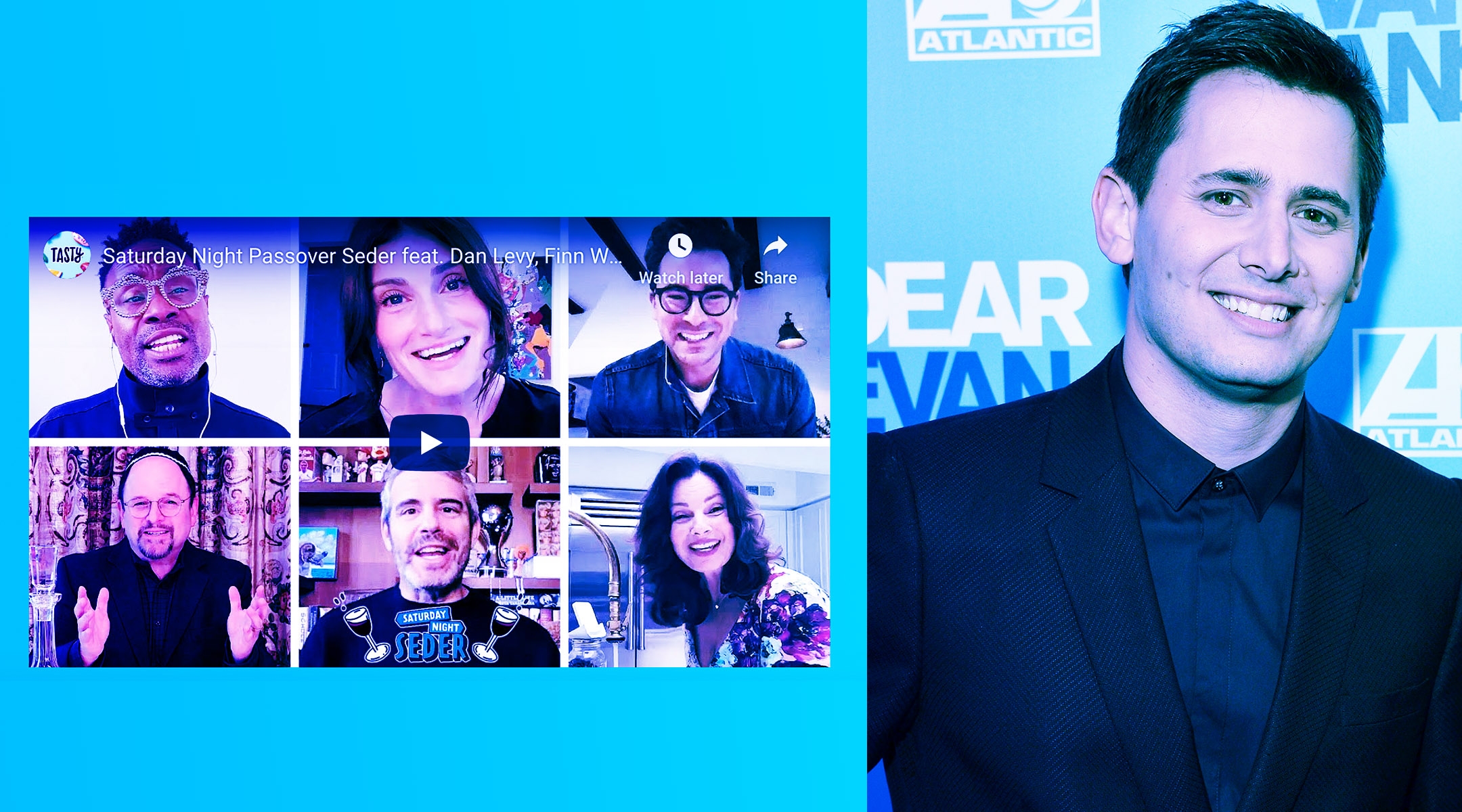NEW YORK (JTA) — Much of my work has not been explicitly Jewish, or Jewish at all, in nature. Long before I helped to create “Dear Evan Hansen,” I adapted “The Christmas Story” for Broadway. But I’ve been trying to figure out how to make meaningful Jewish content for a long time. I’ve done two previous reinterpretations of Passover seders, and also a reinterpretation of Sukkot.
One of the issues I always had was how to bring that kind of work to more people beyond the 100 who could fit in the room. And then a broader question for Jewish artists — one that I’ve tried to tackle through my own work and by serving on the board of Reboot, a Jewish arts and culture innovation nonprofit — is how do you play with new forms to create content that’s meaningful and accessible to more people?
This moment has forced us to come up with answers. It’s forced us to figure out scalability — and also helped us realize that meaningful Jewish content is interesting for way more than the 100 people we happened to know. The coronavirus has forced people to reevaluate how they make things, and it has forced people not to rely on the traditional ways of how they produce content. There’s also no reason not to think about making your work resonant for a broader audience right now, because with all performances online, you’re able to reach them.
For the Saturday Night Seder, we wanted to make something that was charitable — to center the event around tzedakah — but also fill a void created by the absence of a Jewish ritual people were missing.
We bootstrapped it; we got some financial support from Reboot, and for the most part people donated their time. We raised $3.1 million for the CDC Foundation so far, and millions of people watched it. It definitely showed me that there is a hunger for that kind of content in the Jewish world, about things that are related to ritual and Jewish tradition.
But I wonder if it would have been possible without the COVID-19 crisis: The access to talent and time right now is unique. So the question for the future is: How can we facilitate more Jewish artists doing this kind of work? What context can we create to help Jewish artists get the support they need, be connected to talent partners, get financing they require — basically, how do we help people get from point A to B to C to get projects out into the world? Reboot is investigating how to be a hub for content creation in the Jewish world, and there’s room for more innovation.
The more we think about how to support a vast array of Jewish artists, the more we will be able to meet the needs of what people are looking for in this world — whatever it looks like.
This piece is a part of our series of Visions for the Post-Pandemic Jewish Future — click here to read the other stories in this series. Use #JewishFuture to share your own ideas on social media. If you’d like to submit an essay for consideration, email opinion@jta.org with “Visions Project Submission” in the subject line.
JTA has documented Jewish history in real-time for over a century. Keep our journalism strong by joining us in supporting independent, award-winning reporting.







